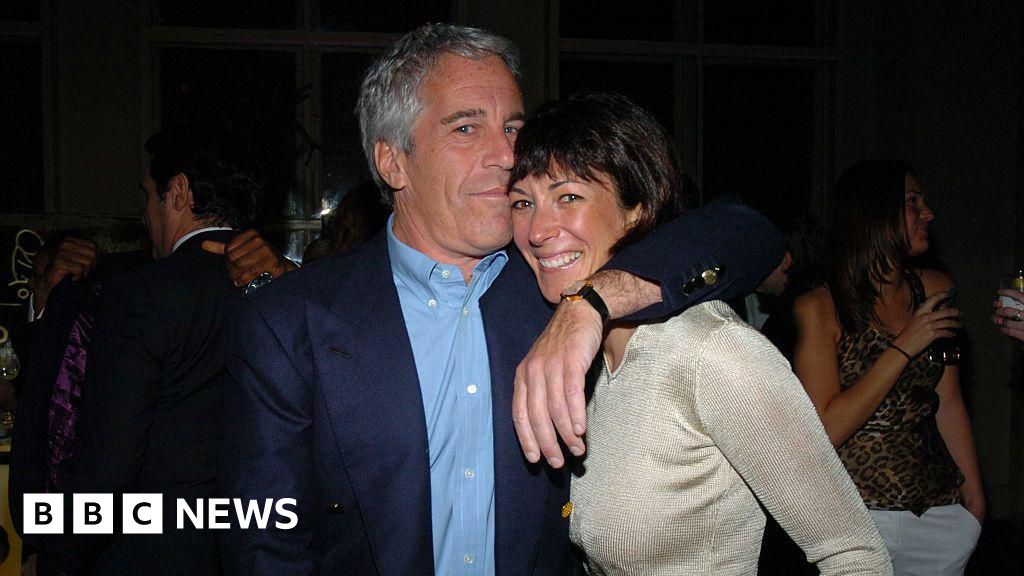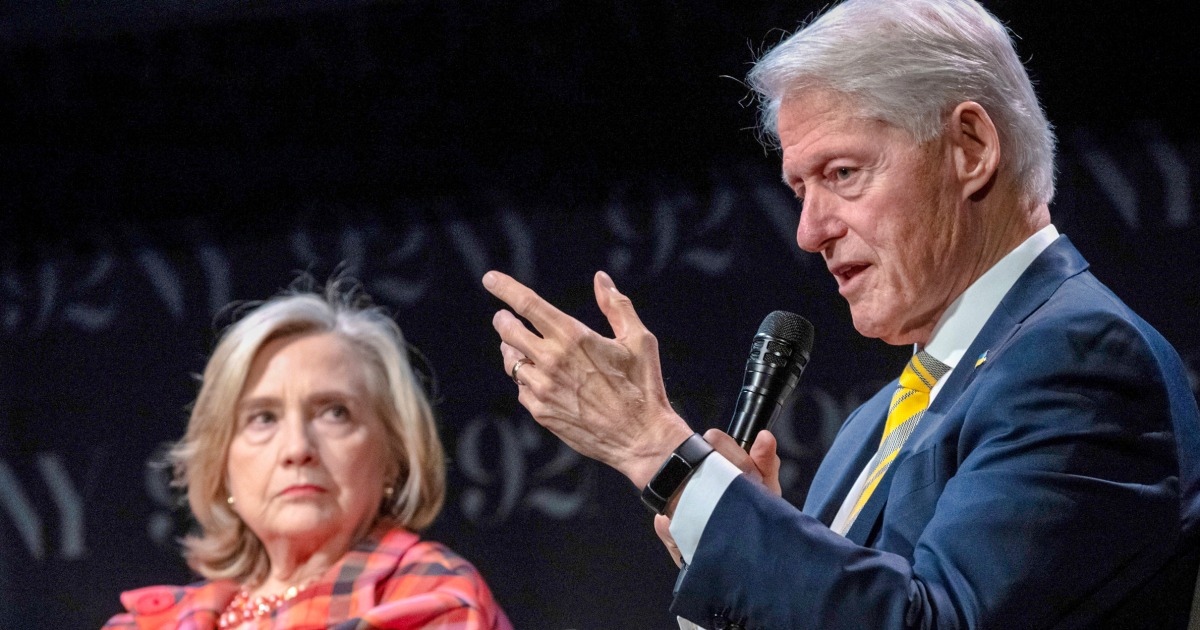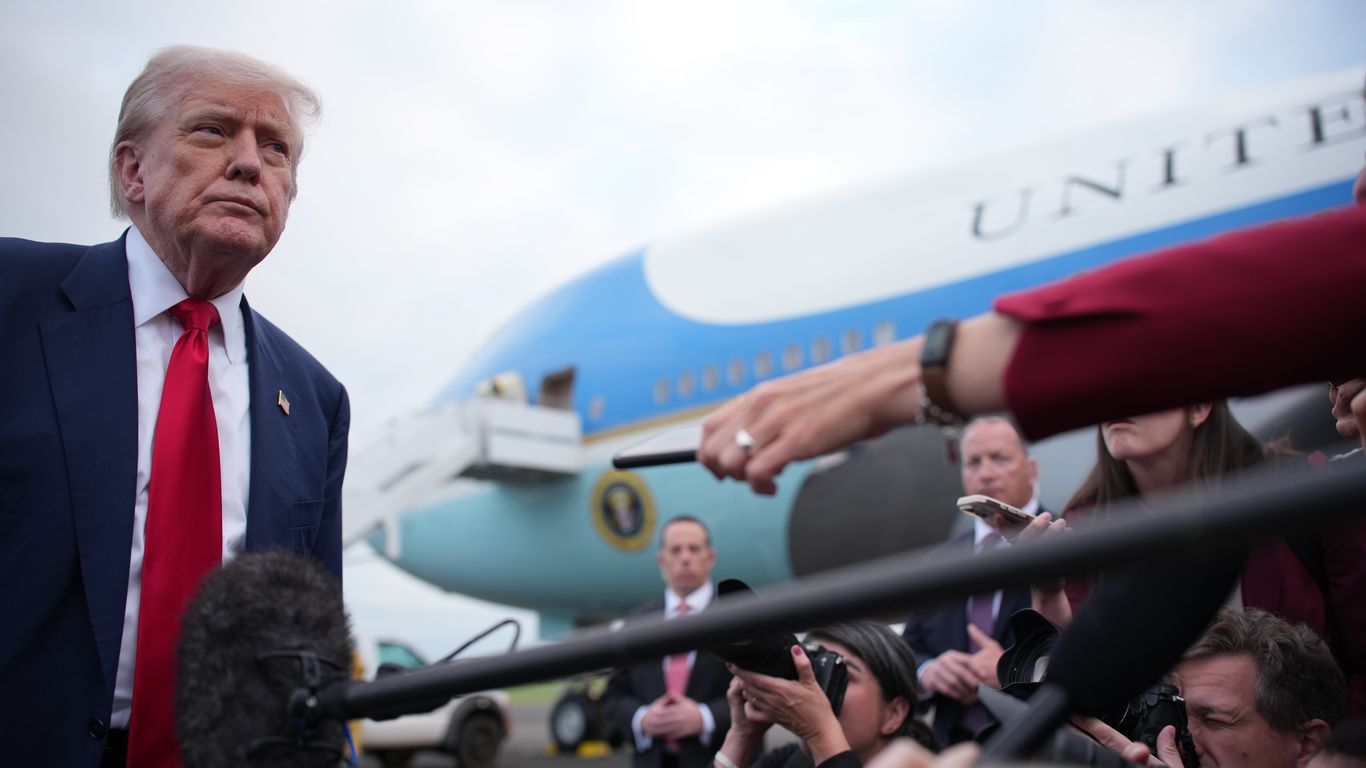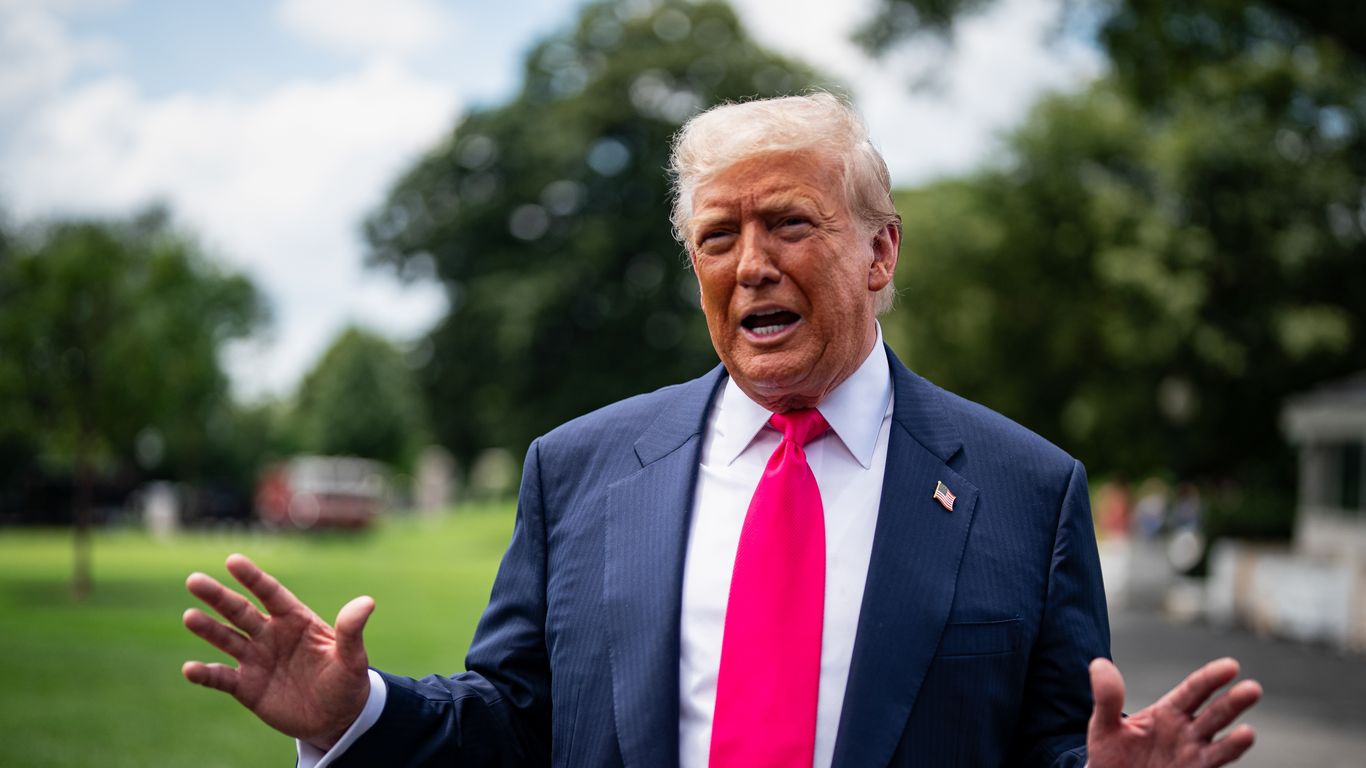New Records Released in Jeffrey Epstein Case

Introduction
The United States House Committee on Oversight and Accountability has recently released records related to the case of Jeffrey Epstein, a convicted sex offender and financier. These records were provided by the Department of Justice and shed new light on the ongoing investigation into Epstein's crimes.
Key Details
The records released by the Oversight Committee include details of Epstein's financial transactions, flight logs for his private jet, and communications with various individuals, including high-profile figures such as former President Bill Clinton and Prince Andrew. The documents also reveal potential connections to other high-profile individuals and possible attempts to cover up Epstein's crimes.
Impact
This new information has sparked further speculation and scrutiny into the handling of the Epstein case by the justice system. The Oversight Committee has stated that they will continue their investigation and hold those responsible accountable. This release of records also serves as a reminder of the importance of government oversight and accountability in maintaining justice and protecting the public's trust.
About the People Mentioned
Jeffrey Epstein
Jeffrey Edward Epstein (January 20, 1953 – August 10, 2019) was an American financier and convicted sex offender whose life and crimes attracted intense media scrutiny and public controversy[1][3]. Born and raised in Brooklyn, New York, Epstein initially worked as a teacher at the Dalton School in Manhattan before transitioning to a career in finance, joining Bear Stearns and later establishing his own investment firms[1][2]. He managed the wealth of billionaire Leslie Wexner, amassing significant personal fortune and cultivating a social circle that included politicians, celebrities, business leaders, and even royalty[2][3]. Epstein’s professional achievements were overshadowed by criminal allegations. In 2005, police in Palm Beach, Florida, began investigating him after a parent reported he had sexually abused her 14-year-old daughter[1]. Federal authorities later identified dozens of girls, some as young as 14, whom Epstein had allegedly abused[1][6]. In 2008, he pleaded guilty in Florida state court to procuring a child for prostitution and soliciting a prostitute as part of a controversial plea deal, serving nearly 13 months in custody with work release privileges[1][2]. Despite his conviction, Epstein avoided more severe federal charges at the time. In July 2019, Epstein was arrested again on federal charges for sex trafficking minors in Florida and New York[1][2]. While awaiting trial in a Manhattan jail, he was found dead in his cell on August 10, 2019; the medical examiner ruled his death a suicide by hanging[1][3]. The circumstances surrounding his death, including missing and modified CCTV footage, fueled widespread public skepticism and conspiracy theories[1]. In July 2025, the FBI released surveillance footage supporting the suicide ruling, though questions about the investigation persist[1]. Epstein’s case remains highly relevant due to ongoing lawsuits by his victims, investigations into his associates, and the release of thousands of previously sealed documents in early 2024 that renewed public interest in his network and alleged co-conspirators[2]. His former associate, Ghislaine Maxwell, was convicted of related charges, underscoring the lasting impact of his crimes[2]. Discussions about accountability, the influence of wealth and power, and the treatment of survivors continue to shape the public dialogue around Epstein’s legacy[2][5].
Bill Clinton
William Jefferson Clinton, born William Jefferson Blythe III on August 19, 1946, in Arkansas, is an American politician and lawyer who served as the 42nd president of the United States from 1993 to 2001[3]. A member of the Democratic Party, Clinton became the first president from the Baby Boomer generation and the youngest president to serve two full terms since Theodore Roosevelt[3]. He earned a bachelor’s degree from Georgetown University, studied at Oxford as a Rhodes Scholar, and graduated from Yale Law School, where he met his future wife, Hillary Rodham[3][7]. Clinton’s political career began in Arkansas, where he served as attorney general and was elected governor at age 32, holding the office for five non-consecutive terms and earning a reputation for reforming education, health care, and welfare[2][3]. In 1992, he was elected president, defeating incumbent George H.W. Bush and independent Ross Perot, and was re-elected in 1996[3][6]. His presidency is best remembered for presiding over the longest peacetime economic expansion in U.S. history, marked by record job growth, low unemployment, rising home ownership, and the first federal budget surpluses in decades[1][4][8]. Significant domestic achievements include the Family and Medical Leave Act, the Violent Crime Control and Law Enforcement Act, and the ratification of the North American Free Trade Agreement (NAFTA)[1]. His attempt at comprehensive health care reform, led by First Lady Hillary Clinton, failed to pass Congress and contributed to Republican gains in the 1994 midterms[1]. In foreign policy, Clinton helped broker the Oslo Accords between Israel and the Palestine Liberation Organization, the Israel-Jordan peace treaty, and the Dayton Peace Accords ending the Bosnian War[1][4]. He also authorized NATO intervention in Kosovo to halt ethnic cleansing[4][5]. However, his administration faced criticism for its handling of conflicts in Somalia and Rwanda[1]. Clinton’s presidency was marred by scandal, most notably the Monica Lewinsky affair, which led to his impeachment by the House of Representatives in 1998 for perjury and obstruction of justice; he was acquitted by the Senate in 1999[5][6]. Despite the controversy, he left office with high approval ratings[6]. Since leaving the White House, Clinton has remained active in global philanthropy through the Clinton Foundation, focusing on issues such as global health, climate change, and economic development[4]. He continues to be a prominent public speaker and occasional political advocate. There are no major recent events directly involving Clinton as of October 2025, but he remains a significant figure in American political life.
Prince Andrew
Prince Andrew, Duke of York (Andrew Albert Christian Edward Mountbatten Windsor), born on 19 February 1960 at Buckingham Palace, London, is a member of the British royal family. He is the third child and second son of Queen Elizabeth II and Prince Philip, Duke of Edinburgh, and the younger brother of King Charles III. Prince Andrew was born second in the line of succession to the British throne and is currently eighth, being the first in the line who is not a descendant of the reigning monarch. Andrew served in the Royal Navy from 1979 to 2001, reaching the rank of Vice Admiral. He was a helicopter pilot and participated in the Falklands War, flying missions including anti-surface warfare, casualty evacuation, and Exocet missile decoy operations. His naval service included command of a warship and he was promoted to commander in 1999 and honorary captain in 2001. In 1986, Andrew married Sarah Ferguson, and they have two daughters, Princess Beatrice and Princess Eugenie. The couple separated in 1992 and divorced in 1996, events that received significant media attention. As Duke of York, Andrew undertook official duties and engagements on behalf of the Queen and served as the UK's Special Representative for International Trade and Investment from 2001 until 2011. Andrew resigned from royal duties in November 2019 following increased scrutiny related to his association with Jeffrey Epstein. In 2025, under further public and political pressure, he agreed to stop using his royal titles, although Parliament has not formally voted to remove his title of Duke of York. He currently resides at Royal Lodge, though reports indicate his lease on the property has ended and he may relocate to a privately-owned property. Andrew remains a figure of public discussion, particularly regarding his titles and role within the royal family.
About the Organizations Mentioned
United States House Committee on Oversight and Accountability
The **United States House Committee on Oversight and Accountability** is a pivotal standing committee within the U.S. House of Representatives, tasked with ensuring the efficiency, effectiveness, and accountability of the federal government. Established in 1816, the committee has evolved significantly over the years, with its name changing several times to reflect its expanding responsibilities. Originally known as the Committee on Expenditures in the Executive Departments, it was later renamed to the Committee on Government Operations in 1952, and then to the Committee on Oversight and Government Reform in 2007. In the 118th Congress, it was briefly renamed the Committee on Oversight and Accountability but reverted back in the 119th Congress[1][3]. ### Key Functions - **Oversight Role**: The committee scrutinizes a wide range of governmental functions, including healthcare, information technology, national security, and intergovernmental affairs[1][3]. - **Investigatory Powers**: It has broad investigatory powers, allowing it to conduct investigations into any matter without regard to jurisdiction[2]. - **Subcommittees**: The committee is divided into subcommittees focused on areas like cybersecurity, government operations, and healthcare[4]. ### History and Achievements - **Establishment and Evolution**: The committee was formed to consolidate oversight of federal expenditures and has grown to cover a broad spectrum of government activities[1][3]. - **Reorganizations**: It has undergone several reorganizations, notably in the 1990s and 2000s, to streamline its operations and enhance its oversight capabilities[3]. ### Current Status - **Membership and Leadership**: Currently chaired by James Comer, the committee has 47 members in the 119th Congress[1][4]. - **Focus Areas**: It continues to focus on exposing waste, fraud, and abuse, ensuring transparency and accountability in government operations[4]. ### Notable Aspects - **Influence and Power**: The committee is one of the most influential in
Department of Justice
The **United States Department of Justice (DOJ)** is a federal executive department responsible for enforcing federal laws, ensuring public safety, defending the interests of the United States, and upholding civil rights. Established in 1870 to consolidate federal legal affairs under the Attorney General, the DOJ has grown into a vast organization with over 115,000 employees and a budget exceeding $22 billion[1][4][5]. It operates through more than 40 component organizations, including prominent law enforcement agencies such as the Federal Bureau of Investigation (FBI), Drug Enforcement Administration (DEA), Bureau of Alcohol, Tobacco, Firearms and Explosives (ATF), and the U.S. Marshals Service[1][4][5]. The DOJ’s core mission is to uphold the rule of law, keep the nation safe, protect civil rights, and ensure a fair and impartial administration of justice across federal, state, local, tribal, and international levels[2][5]. It investigates and prosecutes federal crimes, including terrorism, drug trafficking, organized crime, financial fraud, and cybercrime. The FBI, as the DOJ’s principal investigative arm, leads in areas such as counterterrorism, counterintelligence, and cybercrime[6]. Additionally, the DOJ manages federal prisons and provides leadership and resources to state and local law enforcement agencies. Historically, the DOJ’s origins trace back to the Judiciary Act of 1789, which created the Attorney General's office. Its establishment as a separate department in 1870 allowed for greater coordination of federal law enforcement and legal representation of the government[2][4]. Over time, the DOJ has played a critical role in landmark civil rights enforcement, combating organized crime, and adapting to modern challenges such as cyber threats and international criminal cooperation[1][5]. Today, headquartered in Washington, D.C., with field offices nationwide and abroad, the DOJ continues to influence national security and justice policy, balancing traditional law enforcement with evolving technological and societal demands.



















